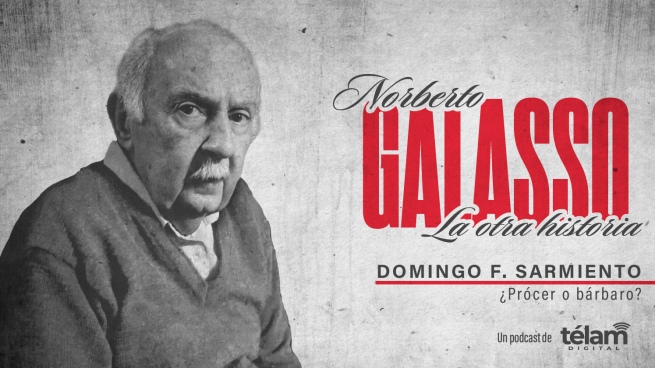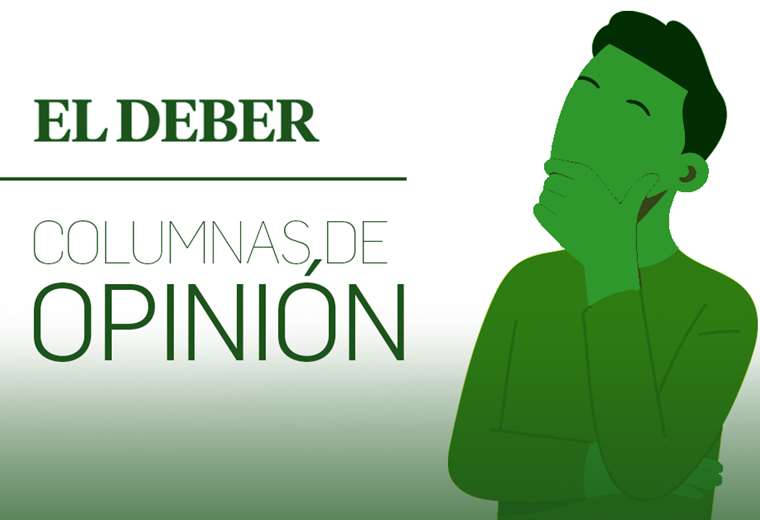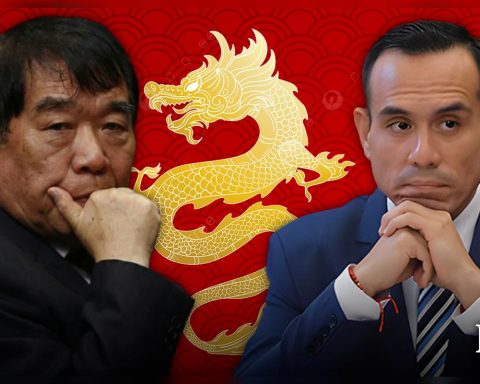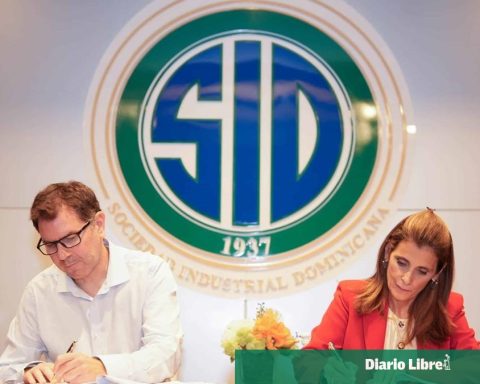In September a new anniversary of Domingo Faustino Sarmiento is commemorated. that will be recognized in schools, especially, and in the media.
There are several Sarmiento. The always applauded, that he developed what would become the ideology of the ruling class. Namely, civilization or barbarism, conception coming from his “Facundo” and interventions typical of his approach to Bartolomé Mitre, whose conclusion is that barbarism are the Indians and the gauchos and even -in “Conflict and Harmonies of Races in America”- the Jews too.
Namely, there is a total ethnocentrism on the part of Sarmiento, for whom the whites from Europe are civilization and consequently the destiny of the country is to copy Europe or the United States. Sarmiento sometimes talks about Europe and sometimes, since he was Ambassador to the United States for a while and was amazed at North American progress, he talks more about the northern country than about England, unlike Mitre.
This idea leads to a whole series of anti-popular political positions. He talks about the rabble, about the blacks: they must be fought and made to disappear, something that some people still raise today, with less explicit terms, as a political program.
(Technical Sheet: General Production: Lorena Vazquez – Sound Editing: Alejandro Sanz – Recording: Soledad Zunino)
That leads Sarmiento to say barbarities, as for example in a letter to Miter he points out: “Don’t save the blood of gauchos, it’s the only human thing they have, it’s a good fertilizer for the earth”. In another letter he tells her: “If General Sandes kills, let him kill, don’t put limits on his actions because all those people have to disappear.”
Even the Paraguayans, the Colombians and the Uruguayans, in general, should also be eliminated, and in the case of the Indians, even the youngest should be eliminated, he says, because otherwise they later have the native conception in their blood, which is a dangerous conception. and anti-progress.
Taking all these statements into account, we could say that Sarmiento himself was a barbarianThat is why Jauretche used to say: “Sarmiento was a Facundo who took to the side of the books, but he was just like Facundo”. Even the Sarmiento’s had family ties with the Quiroga’s in Cuyo, which for Jauretche was one more indication that Sarmiento was really a barbarian.
In that sense, he was idolized by the dominant sectors and, Given the He was very concerned about the educational question, he appears as the main educator. But what Sarmiento lacked was being educated, because his actions were typical of a passionate man who had no limits.
Already a high-ranking public official, the anecdote of when he caught a cane in the street with an adversary of the Chamber of Deputies, and told the legislator with the surname Cabeza: “You are not Head, you are tail and dirty ”. Another controversy places him at odds with Juan Bautista Alberdi, to whom he blurts out: “And the whore over there, who threw him by the legs.” On several occasions he manifests himself in this way, and that makes many, especially the representatives of the right, assure as someone once said: “I like Sarmiento, he is a figure that attracts me because when he thought that someone was a son of bitch, I told you that, that you were a son of a bitch. That is, he said what he thought, not like other politicians”. That is not a great merit, but well, it is worth it in the sense that he paints him as a man without limits.
There is a book by Octavio Amadeo that talks about personalities and says that Sarmiento “It was like a grotesque animal that comes down from the middle of the jungle and bursts in, sweeping everything away”. Sarmiento was also the man who expressed himself, for example, when he was amused by something, laughing, but he didn’t laugh with a fine laugh or an ironic laugh, he laughed like fat people who laugh moving their whole bodies. He laughs taking the world with him.
He was a man who wanted, in his own way, create a country in a hurry, maybe. And that he did not cease to be a sanjuanino, which means that he acted for a long time in the service of Bartolomé Miter and earned the title of “rental of Buenos Aires”. However, a detailed analysis of that time rescues some aspects of Sarmiento, if we forget for a moment about these barbarities.
When the presidency of Bartolomé Miter ends, he wants to avoid Sarmiento, because he knows him closely and knows that he can run for office. Then Miter issues a document, where he says: “Neither Alsina, nor Sarmiento, nor Urquiza can be presidential. The man who should succeed me is (Rufino de) Elizalde”, who had been Chancellor in the Paraguayan War. Elizalde was known as “the Brazilian” because in all negotiations with Brazil he had generally acted in favor of the neighboring power.
Sarmiento emerges from within, as a candidate from within. Here is an interesting fact that is little known. In 1856, when the separation of Buenos Aires took place, miter published an article in El Nacional saying that “The separation of Buenos Aires must be definitive. It must become with its port and its customs in a country”, for which it closed the passage to the ocean to the remaining provinces. There were two countries left, as in reality throughout history there have been virtually two countries, due to their economic policies and their electoral results.
(Technical Sheet: General Production: Lorena Vazquez – Sound Editing: Alejandro Sanz – Recording: Soledad Zunino)
This proposal receives great support from Pastor Obligado and from all the mitrista people of Buenos Aires, but not from Sarmiento, because he would stay outside as a San Juan native, in the country that remains poor and in the interior. And there is customs in the middle, because Buenos Aires spends enormous sums on luxuries, as the Rivadavia government did, which disregards the entire interior, plunged into total poverty.
Finally, when Sarmiento becomes president, on the one hand, he continues Miter’s policy -which is the rapprochement with the British Empire of which Argentina is becoming a semi-colony-; on the other hand, he adopts measures that contradict that project. For example, tries to promote the development of mining throughout the interior of the country linked to the Andes Mountains.
Sarmiento was even naive enough to say to Miter “we have to develop mining”, and Miter did not answer his proposal, because his program at that time was to sell wool and meat, and later cereals, and import manufactured articles, which it turns the country into the living expression of the domination of the international division of labour. Sarmiento also promotes an Industrial Exhibition in Córdoba, something that for his time as President was not common to give importance to the sector.
With respect to the war in Paraguay, the positions of Sarmiento and Miter are also opposed. Sarmiento launches, through his Foreign Minister Mariano Varela, the idea that victory does not give rights, and this causes a great commotion in Buenos Aires. Because “if victory does not give rights -said the porteños- what are we fighting for?” That proposal of Sarmiento is rejected. The newspaper La Nación then becomes the main opposition body to the Sarmiento government, and when his mandate comes to an end and Miter wants to reach the presidency again, Sarmiento comes up against him with the candidacy of his education minister, Nicholas Avellaneda.
In fact, Sarmiento had made an important educational policy, especially towards the interior, because his obsession -beyond the brutalities that we have mentioned- was education. He had even made a very important telegraph network for the connection of the country. He maintained: “I am a porteño in the provinces and a provincial in Buenos Aires”, and that did not fit with the positions of La Nación and Mitrism, which obviously wanted to create a country subordinate to the ocean, looking towards Europe and linked to the British Empire.
Those were several of the attitudes that Sarmiento took at that time. Even with respect to education, he had a different conception than Mitre. Sarmiento said that “what had to be privileged was the primary school to teach the people to read and write”. Miter considered that the important thing was high school, to create figures who would serve his conservative party in politics.
And another unknown, or little known, aspect of Sarmiento is that he tries in Chivilcoy a distribution of land, an agricultural colony. Although later, when he tries to develop it in other parts of the province of Buenos Aires, he fails to achieve his goal.

But that leads him to some of his more emphatic expressions like “This country is governed by cows and what they want is for me as president to govern so that the coffers of the Anchorenas, the Pereiras, the Duggans, the Leloirs accumulate,” and he refers to what he calls “ an oligarchy smelling of dung”. For this reason, Sarmiento in his last years is dislocated from the prevailing mitrism, and it is also going to happen that in his final years he publishes the “Condition of the foreigner in America”, which is the back of his book “Conflict and harmony of the races in Argentina”.
In the book “Condition of the foreigner in America”, Sarmiento says something very concrete criticizing the immigration that is taking place. He assures that “any of our gauchos has a greater capacity to learn things than these new people who are coming from abroad. In addition, the country is becoming foreign”. In his last days he says: “There will come a time, if we continue like this, when one stops in the street and they say ‘What are you?’, And one says ‘Sorry, I’m Argentine'”.
Sarmiento combines a tremendous passion, unleashed, of a furious man who would stop at nothing, with colonial limitations in his thinking that came both from his stay in the United States and from his connection in the 1850s with the main men of the world. mytrism.
There is an interesting fact: Mitre, Sarmiento and Alberdi oppose the Rosas government, but Alberdi supports Urquiza and, as a consequence, he goes to Europe and then they leave him in Europe practically exiled, they do not give him money for the embassy and appoint another ambassador. Around 1880, an old and sick Alberdi returns with fear after having crossed a fierce controversy with Sarmiento. That Alberdi, so to speak, small, arrives out of necessity at the Casa Rosada, and everyone is amazed at what happens: Sarmiento goes out to meet him and, as if nothing had happened, opens his arms, gives him a hug and says “my dear Alberdi”.
At the same time, to disqualify him as an intellectual, La Nación publishes an article about a letter from Alberdi in which the author had made a spelling error. That is to say, Mitrism kept alive its criticism and its hatred of Alberdi, and Sarmiento takes a different attitude, at times typical of his impulses. They are positive impulses that compensate somewhat for his figure as an authoritarian and violent man with the caudillos and with the popular masses.
I believe that Both Sarmiento must be considered equally. Else, we would reach an exaltation in the schools of a Sarmiento educator, when he was the least educated of all. Some rosista historians even say that the diffusion of the schools during the Sarmiento government is due more to Minister Avellaneda, who was expressly in charge of making the schools proliferate throughout the interior. But this is a second nature discussion.
Sarmiento is a figure that expresses the contradictions of a country that it wanted to be and that it was not, and that in the end was for a long time -until October 1945- a semi-British colony.

















